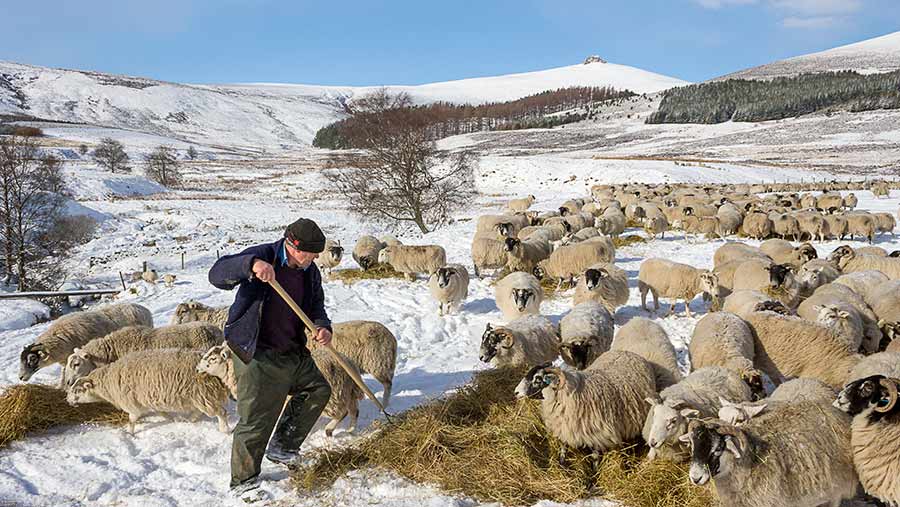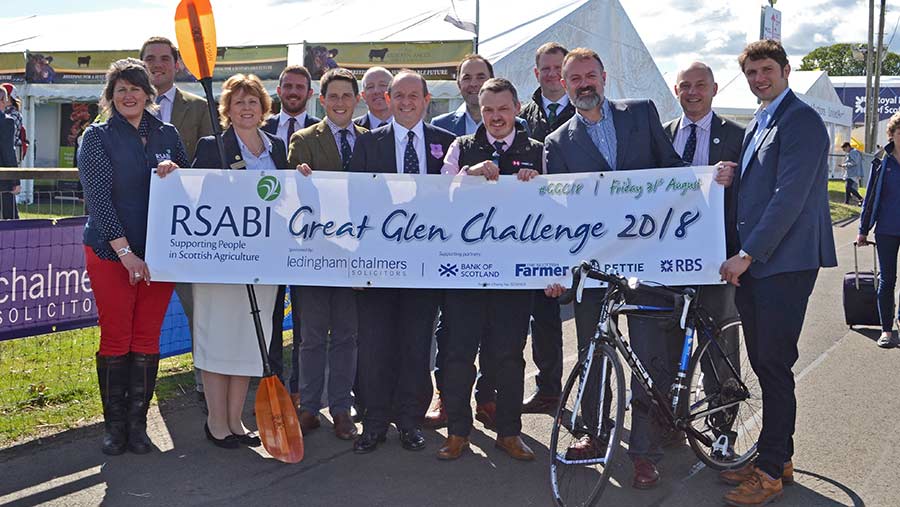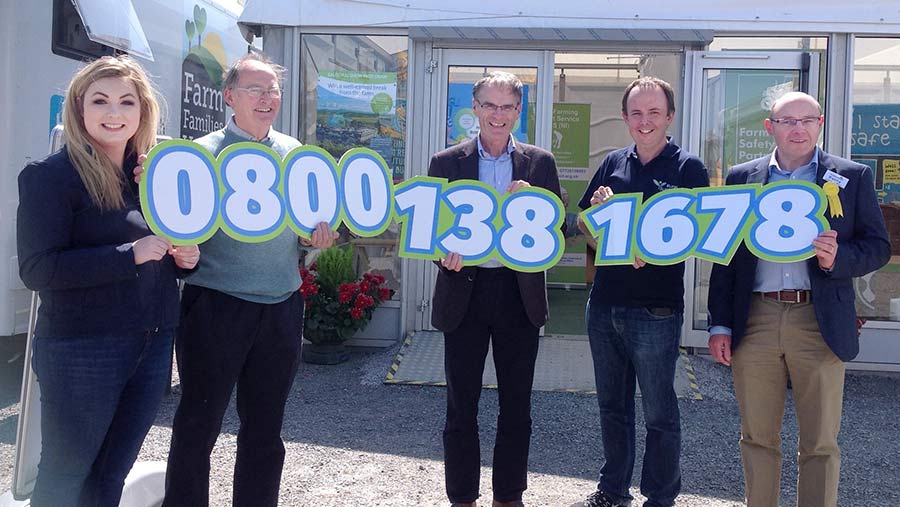How rural charities can help Scots and NI farmers
 © Moyra Gray/RSABI
© Moyra Gray/RSABI The Royal Scottish Agricultural Benevolent Institution (RSABI) supports Scottish people who work, or have worked, in farming, crofting and growing, and their dependents.
The helpline is available 365 days a year from 7am to 11pm and the charity also has a call-out service for those who are vulnerable, isolated or need extra support.
The charity can provide regular monthly support for those unable to work due to age or disability, and can help with one-time costs, including heating, food vouchers, disability aids, funerals, and much more.
See also: When, how and why farming charities Rabi and FCN can help you
The number of working farmers asking for RSABI’s aid has increased tenfold from 2017 to 2018.
Mags Granger, RSABI welfare manager, said: “There seems to be more financial pressures on farm businesses at this time. The bad weather has had an impact too.
“The majority of our support is emotional and practical and if we can’t help we will try and find someone who can.
“I think all farmers struggle to ask for help and probably it does take time to work up the courage to call, although they are glad when they do.”
How you can help
RSABI welcomes enquiries from anyone who would like to help through volunteering or fundraising.
The charity holds the Great Glen Challenge, a multi-sport fundraising event for teams from the rural sector, every August.

© RSABI
Make a one-off or regular donation or find out more about joining the Supporter Scheme here.
Contact details:
Helpline: 0300 111 4166
Issues people call about:
- Liaising with statutory bodies and banks
- Business difficulties
- Debt
- Mental wellbeing
- Relationships
- Succession
- Animal health
- Accidents
- Illness
Rural Support, Northern Ireland
Rural Support was established in 2001 to help farmers affected by the foot and mouth crisis, and has since grown to cover issues relating to finance, succession, paperwork and more.
Based in Cookstown, Mid Ulster, the organisation provides a listening and signposting service for farmers across Northern Ireland, as well as face-to-face support, help sourcing information and advice.
Four full-time and two part-time staff members, 35 volunteers, 12 farm business mentors and 11 board members are working together with the aim of creating a vibrant, healthy and resilient farming community.
See also: Where farmers in need can find charity help
The number of callers to the helpline has grown year on year, due to the increasing pressures in farming, and people becoming more aware of both the charity’s services and mental health issues, according to chief executive Jude McCann.
“Farmers are a proud community and therefore don’t like to talk about their problems, especially those related to mental health,” he said.
“Rural Support is on the end of the phone for anyone that needs our help, so folk shouldn’t feel embarrassed to call.
“We all need help in some shape or form throughout our lifetime.”
Aid programmes
Rural Support’s Farm Resilience Programme, funded by the Prince’s Countryside Fund, is aimed at livestock farmers who are looking at ways to improve their business and efficiency.
The organisation has also established a Social Farming Referral Fund to help farmers engage in social farming, which it champions as a way to promote therapy, rehabilitation, social inclusion, education and social services.
Additionally, its On Farm Business Support scheme helps with business and financial issues such as finance, debt and paperwork.
How you can help:
You can donate on the Rural Support website.
Anyone who would like to become a volunteer, to cover the helpline, assist at outreach programmes or provide technical and emotional support to those in need, can contact volunteer and helpline co-ordinator Deborah Gavin by calling 028 8676 0040 or emailing deborah@ruralsupport.org.uk
Contact details:

© Rural Support
Freephone helpline, available 9am to 9pm, Monday to Friday: 0800 138 1678
Issues people call about:
- Finance and debt
- Technical issues
- Paperwork, bureaucracy
- Family relationships
- Succession planning
- Marital difficulties
- Animal disease
- Major weather events
- Stress
- Physical and mental health
Case study
John, a self-employed joiner who manages a small farm, invested in modernising the holding and had hire purchase agreements for machinery, as well as bank loans.
When John’s joinery income dropped, he fell behind on his payments, putting his farm at risk. He felt worried and depressed and had contemplated suicide.
One of Rural Support’s mentors worked with John on his suicidal thoughts and helped him get support from his GP and other organisations, such as the Citizens Advice Bureau.
A volunteer with technical farming expertise assisted John to find ways to reduce costs and improve his farm income. He was also given contact details for crisis response helpline Lifeline and the Samaritans.

